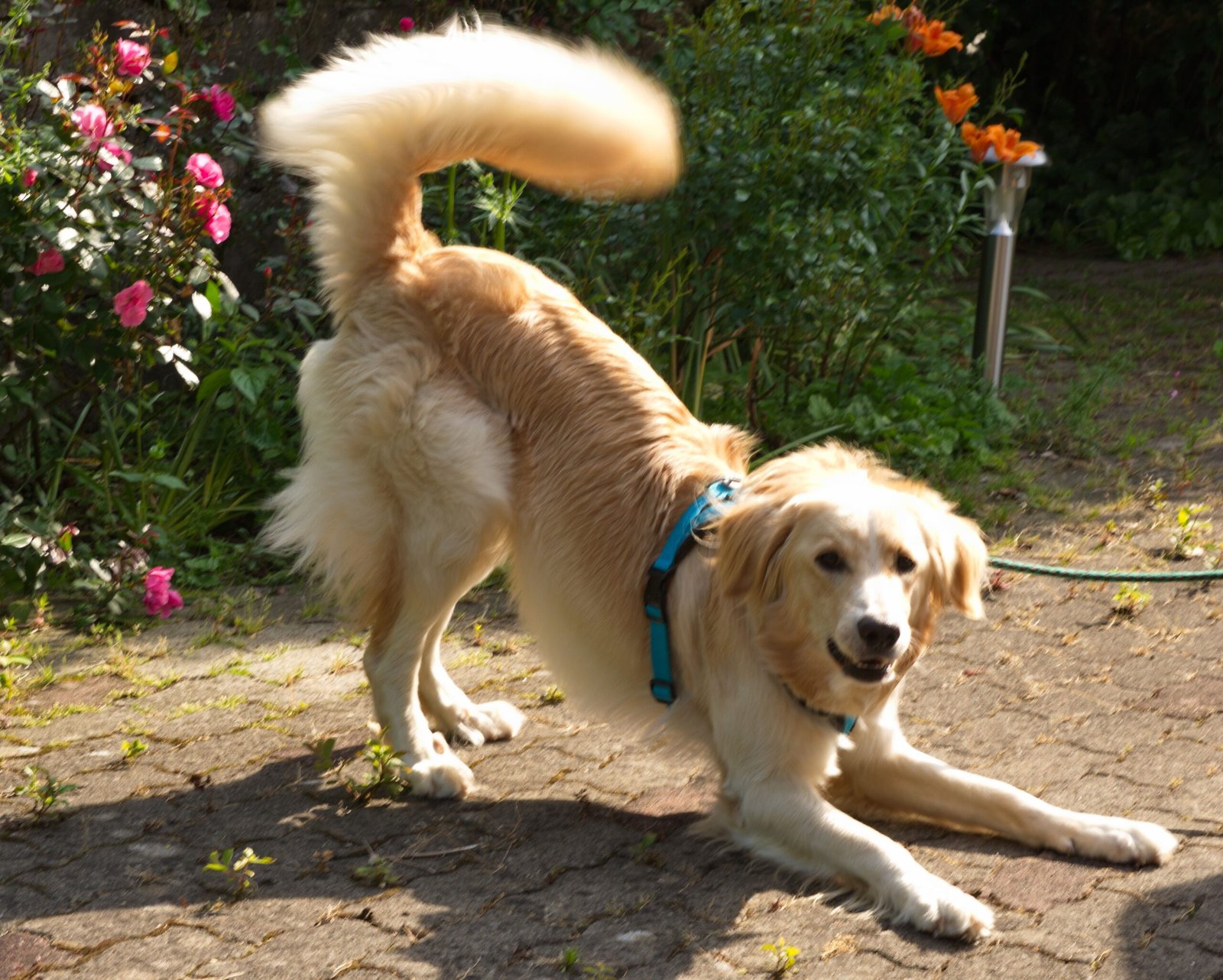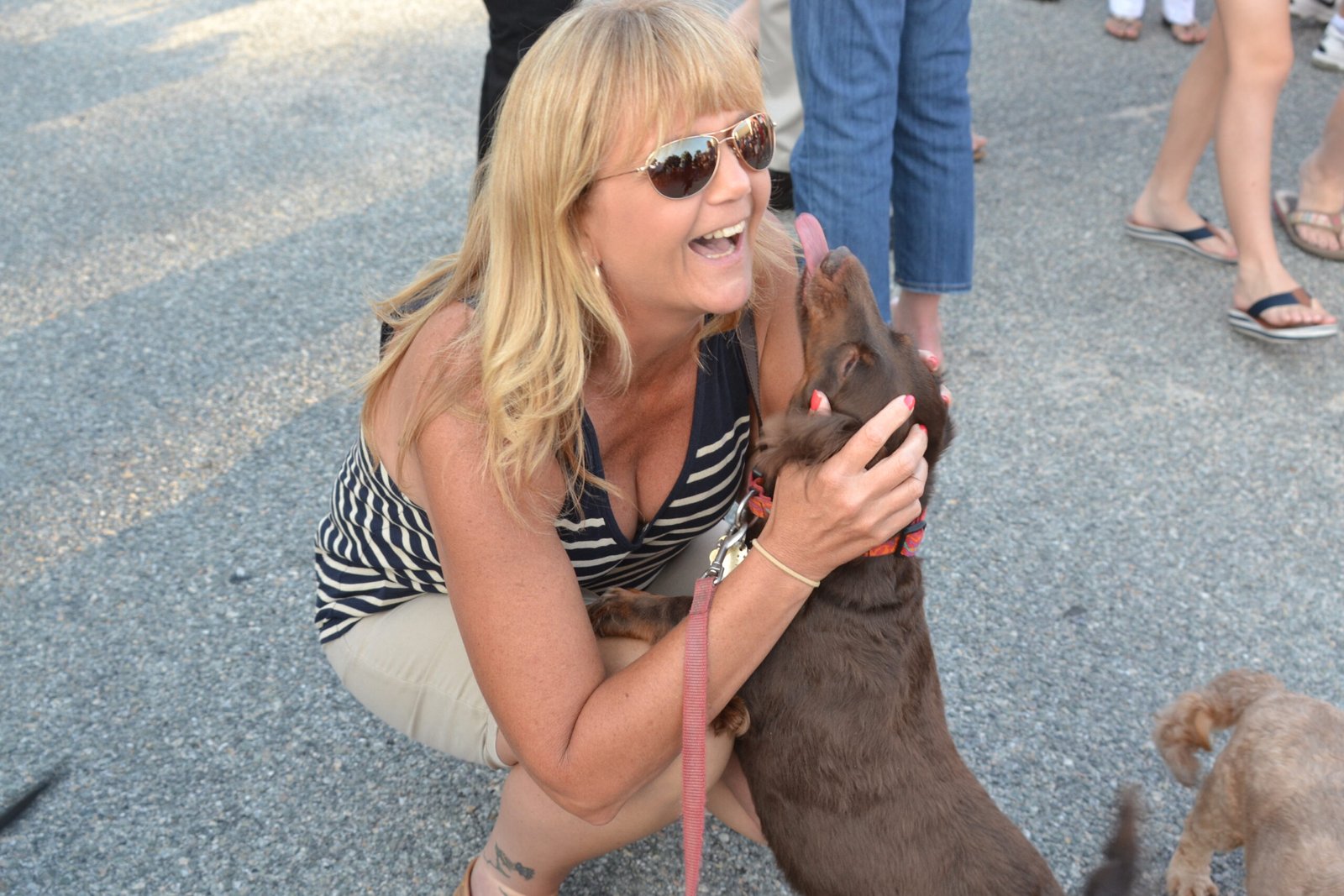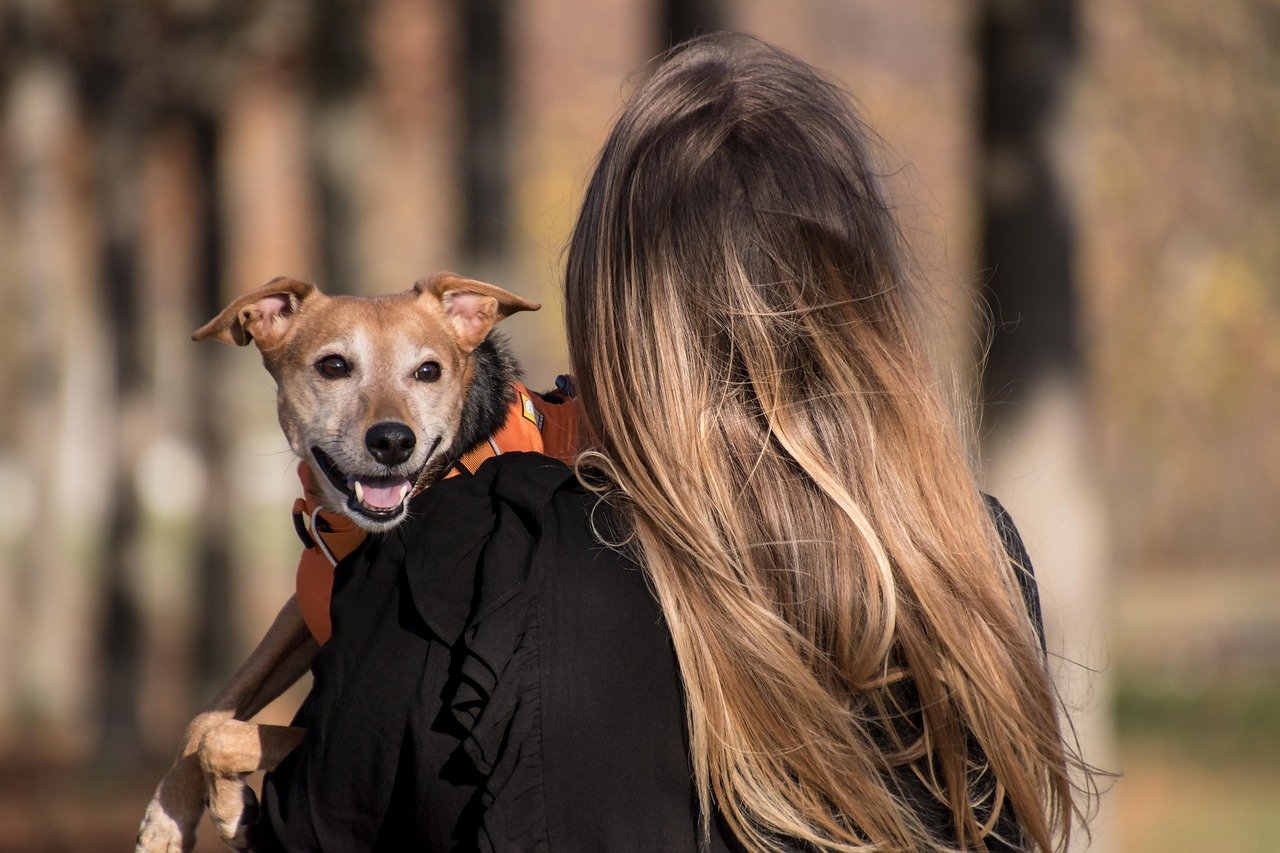Have you ever noticed your dog treating you with a mix of affection, playfulness, and gentle correction? That might be because they see you as a giant, hairless puppy! Dogs communicate through behavior and energy, not appearance—so when you snuggle, use a soft voice, or even show clumsy enthusiasm, they relate to you the same way they would a younger pup. This explains why some dogs “correct” you with gentle nudges or follow you around protectively. It’s their instinct kicking in, treating you like part of their pack—just one that forgot to grow fur. Funny, heartwarming, and a little humbling, right?
Seeing the World Through Canine Eyes
Dogs don’t see the world the way humans do. While we rely heavily on sight, dogs depend mostly on scent and body language. Their eyes process colors differently, mostly seeing shades of blue and yellow. When they look at you, they notice your size, movements, and scent more than the details of your face. To a dog, you’re a huge presence—towering above them, moving with all the unpredictability of a playful pup. This perspective can make you seem like an oversized, hairless, but strangely familiar creature in their pack. It’s like you’re the “big puppy” in their world, a part of their family, yet a little odd compared to them.
The Language of Play: Puppy Games for Life

If you’ve ever seen dogs playing together, you’ll notice their games are full of bowing, bouncing, and chasing. When your dog wants to play with you, they use the exact same signals—play bows, wagging tails, and goofy barks. Dogs treat their human friends just like they treat other puppies, inviting you to join in their fun. They might even get confused when you don’t respond as another dog would! To them, you’re just a funny-looking puppy who hasn’t quite mastered the rules of play. This is why your dog will drop a toy at your feet, roll over for belly rubs, or nudge you with their nose—they’re inviting you to join their puppy games.
Pack Mentality: You’re Family, Not the Boss
Many people believe dogs see us as “alpha leaders,” but recent research suggests something more touching: dogs see us as family. Just as puppies look to their littermates and mother for comfort, guidance, and play, your dog looks to you. They follow you around, snuggle up close, and even whine when you leave the room. To your dog, you’re not a distant authority figure—you’re a beloved member of their pack. And in their eyes, your lack of fur or strange habits doesn’t matter. You’re part of their world, and they treat you with the same affection and loyalty they’d show any other puppy.
Canine Communication: Mimicking Puppy Behavior
Dogs are experts at reading body language, and they often copy the behaviors they see. If you yawn, your dog might yawn too; if you get excited, your dog’s tail starts wagging. This is called “mirroring,” and it’s something puppies do with each other. When you play with your dog, speak in a high-pitched voice, or crouch down to their level, you’re speaking their language. Your dog responds as if you’re another puppy, ready for fun or comfort. It’s no wonder they shower you with the same love and playfulness they give their furriest friends.
The Strange Case of the Missing Fur

Dogs don’t judge you for your lack of fur, but they do notice it. When they nuzzle your bare skin or lick your face, they’re treating you with the same gentle care they’d use with a vulnerable puppy. In the wild, puppies are groomed and cared for by their pack. Your dog might see your smooth skin and think you need a little extra attention, so those slobbery kisses are just their way of keeping you clean and safe. Some dogs even try to “herd” or “protect” their human, as if you’re a helpless pup who needs guidance.
Learning Together: Training as Puppy Lessons
Training sessions aren’t just about commands—they’re moments of bonding. When you teach your dog to sit, stay, or fetch, you’re engaging in the same kind of learning they experienced as puppies. Dogs thrive on positive reinforcement, just like young pups learning from their mother or siblings. Your encouragement, treats, and praise make them feel secure and happy. In turn, your dog teaches you patience and joy, reminding you to celebrate small victories. This back-and-forth exchange only deepens your puppy-like bond.
Affection Over Authority: Why Dogs Cuddle
Ever wonder why your dog insists on snuggling up close or sleeping on your lap? In the wild, puppies pile together for warmth and comfort. Your dog sees you as a safe, cuddly companion, not just a provider of food. They crave your touch and presence, pressing close to feel connected. This isn’t about dominance—it’s about love and reassurance. When you stroke your dog’s fur or allow them to rest their head on your knee, you’re acting as a littermate would, sharing affection in a language older than words.
Social Signals: Understanding Your Movements
Dogs watch every step you take, learning your routines and moods. They pick up on subtle cues—the way you walk, your tone of voice, even your sighs. To a dog, these signals are just like the ones puppies use to communicate with each other. If you seem sad, your dog might offer comfort by leaning against you or bringing a favorite toy. If you’re happy, they bounce with excitement. This intuitive understanding comes from their instinct to care for and respond to their packmates—giant hairless or not.
Trust and Loyalty: The Heart of the Puppy Bond
Perhaps the most magical part of your relationship is the trust your dog places in you. Puppies rely on their family for safety, and your dog extends that same trust to you. They depend on you for food, shelter, and love, just as puppies depend on their mother. This deep bond is built on loyalty and faith—a connection that doesn’t care about fur, size, or even species. When your dog gazes up at you, tail thumping with joy, it’s clear they see you as their own.
How Dogs Show Their Puppy-Like Love
Dogs express their affection in ways that mirror puppy behavior. They bring you toys, nuzzle your hands, and even playfully nip or mouth, just as they would with a sibling. These actions aren’t random—they’re invitations to connect, play, or simply be together. Sometimes, your dog may act silly or goofy, rolling on their back or making funny noises. These are the same antics puppies use to get attention and express happiness. Your dog’s love is playful, pure, and always sincere.
The Hilarious Side of Being a Giant Hairless Puppy

It’s impossible not to smile when you realize how your dog sees you. To them, you’re not just their caretaker—you’re a giant, slightly awkward, but utterly lovable member of their puppy pack. That’s why they follow you everywhere, try to “teach” you how to play, or get confused when you don’t understand their signals. Dogs don’t care about our flaws or differences; they love us with the innocent enthusiasm of a puppy. Their world is simple: you’re family, and that’s all that matters.
When you understand how horses show affection or why your dog thinks you’re a big, goofy puppy, it deepens your bond in the best way. These insights remind us that animals communicate love in their own special language—through trust, closeness, and little everyday behaviors. Whether it’s a gentle nuzzle from your horse or your dog following you everywhere, they’re letting you know you’re part of their world. So next time your pup stares at you with those big eyes or your horse leans in, know it’s their way of saying, “You’re mine.” What do you think your dog would say if they could talk—would they call you their favorite puppy?





